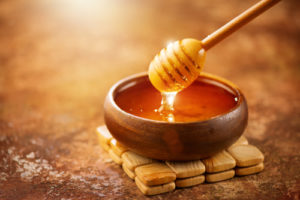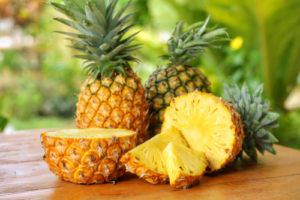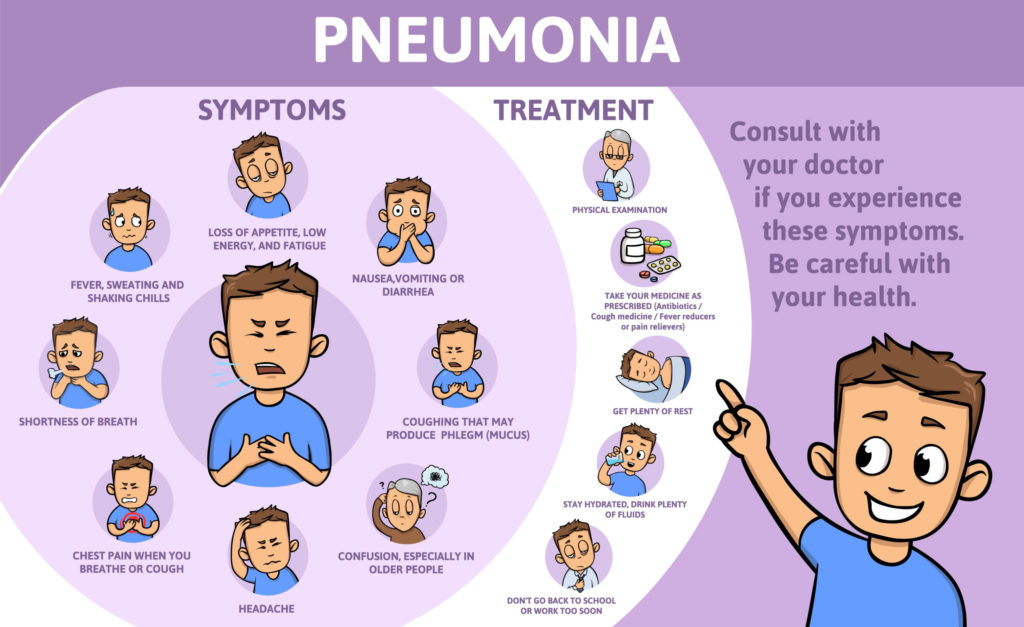What's On This Page?
ToggleNatural Cough Suppressants – Wintertime is one of my favorite times of the year. Ahh… cold, snowy days, crackling fires, fluffy sweaters. Right up until… cough, cough! Haaaaack! With all there is to enjoy during this season, the winter months are commonly known as the “cold and flu” season or “sniffle and sneeze” season because of all the nasty little viruses that come along with it. I just dealt with the flu myself recently and posted a video about how I overcame the bug in less than 24 hours.
No matter how long it takes you to recover, the winter season always seems to start and end with an annoying cough. Personally, I find myself running as far as I can when I hear someone coughing uncontrollably, or if it sounds really productive, meaning wet! But did you know, coughs have been clocked at speeds up to 60 mph? I’m going to have to run a little faster to escape those germs! But coughing is something that a person can’t help, it’s involuntary. It’s the body’s natural way of clearing out the air passages in our lungs. Today’s blog is about helping you suppress a cough by using natural cough suppressant options. Why use medication, when Mother Nature provides!
Natural Alternatives to Suppress a Cough
I have many natural options for you today to help tame your cough. Please ask your doctor if your cough is severe, lasts more than 3 weeks, and before using a supplement or drinking alcohol: 
1. Honey with Coffee is a natural cough suppressant
Honey has been widely used to treat coughs for years and years. Swallowing a spoonful or two calms the throat and has been shown to be just as effective as an over-the-counter cough suppressant ingredient, dextromethorphan (or “DM”), according to the Journal of Alternative and Complementary Medicine. In the Primary Care Respiratory Journal, researchers evaluated drinking honey with coffee every 8 hours and found it to be more effective than steroids! (Stick to black coffee if you can because dairy can exacerbate the mucus production.) Even a spoonful of honey is a natural cough suppressant, all by itself.
The famous brand is Manuka, but there are many other brands that you can take, and if you use honey as your sweetener in coffee, it apparently is really useful to quiet a cough – at least according to one study.
2. Ginger is a natural cough suppressant
has been used medicinally for thousands of years and has been used to support almost every condition including asthma, migraines, constipation, and bronchitis. It is a superior antioxidant and can be cut or crushed into small pieces and added to 5 cups of water with some lemon and honey. Make your own ginger tea: boil the mixture until half of the liquid remains, let cool a bit, and then sip (or slurp, as I do). Do this every 2-3 hours for cough suppression. You can also put 1 drop of essential oil in hot water and do a steam inhalation, and go from there. Ginger is the herb shown in my image above. If you’re interested in the virtues of ginger, I’ve written another great article entitled, Why You Should Eat More Ginger.

3. Bromelain enzyme suppresses a cough due to its natural anti-inflammatory benefits
Bromelain is a natural enzyme that fights inflammation and infections. High amounts of bromelain are found in pineapples. Bromelain has been found to help reduce the airway inflammation in lungs which could ease a cough, according to Alternative Therapies in Health & Medicine. I’m not sure eating pineapple will help, but you can try. Some people have a small cup of pineapple juice every morning but that’s quite a sugar hit.
Instead, I suggest supplementation with bromelain capsules, which are sold at health food stores. Bromelain is such a great enzyme, it’s useful for cytokine balance* and because it has other powerful effects on the body, I’ve added 2,400 GDU of it to my supplement HashiScript, which is useful for thyroid immune support.* You can also buy HashiScript on AMAZON if you prefer to shop on that platform. This is an amazing formula!
4. A Steamy Hot Shower is another natural cough suppressant
Taking a steamy hot shower helps by releasing secretions in the nose. This can help ease a cough that is caused by post nasal drip. Humidifiers can also help but make sure yours is clean; molds and fungus can grow in them and cause other, equally unpleasant or more serious health issues. This is one of the most effective methods to relieve chest pain and increase humidity (which suppresses a cough naturally). It’s great for kids. Speaking of kids, please take 5 minutes to read my other article, Sweet Relief for Coughing Children.
As a measure of caution, I want to warn you NOT to take a hot steamy shower if you have tendencies toward low blood pressure (hypotension). This is because the heat from a hot shower will cause the blood to leave your head, and go to the periphery, and you might feel faint! Read more in my article, 10 Ways to Treat Sudden Low Blood Pressure.
5. Afrin® or other nasal spray decongestants are medicated but still very Useful
These stop post-nasal drip in about 10 minutes and can “shut you up” very quickly if your cough is triggered by a drip. That’s what it was for me when I was sick. You can only use Afrin and related products for about 3 days, otherwise you could develop rhinitis medicamentosa. There is more information at Medscape about Rhinitis Medicamentosa.

6. Vodka or Brandy – Alcohol is a natural cough suppressant
People have been using alcohol to control coughs for generations. If you’re tired of coughing, you can try a shot with my blessings. The reason it works is twofold. It numbs your throat a little bit and “warms” your esophagus and your tired chest making it less susceptible to postnasal drip-induced coughing. It also slows down signals from your brain and calms you down. These together stop the body from feeling the need to cough. People sometimes try over-the-counter cough medicines that contain alcohol, but those won’t work as well because they don’t have enough alcohol in them to affect you.
If you don’t believe me, ask just about any senior about Grammie’s old cough remedy and you’ll hear that a glass of vodka or brandy (or even cognac) helps soothe a cough within just minutes! When I tried this myself, I found the alcohol to work especially better after following it up with a spoonful of pure honey topped with one drop of pure lavender essential oil (EO). If you didn’t know this, lavender can be turned into a drinkable tea. Here’s my Lavender Rose Sleep Tea.
Now, all this said, I am not giving you an excuse to get sloshed, and please DO NOT drink alcohol in combination with another medicine. Even though alcohol is a natural cough suppressant, it spawns free radical damage and harms the liver and colon over time.
7. Natural Vapor/Chest Rub is a natural cough suppressant
Many people turn to an over-the-counter menthol chest rub made with petroleum (same chemical used in a car engine…who wants that on their skin?) to decrease cough symptoms. You can make one at home that is just as effective without any chemicals! Here is a natural vapor/chest rub recipe which you can play around with as you wish:
½ Cup Oil (like coconut)
¼ Cup Beeswax
15 Drops Eucalyptus Essential Oil
15 Drops Peppermint Essential Oil
15 Drops Lavender Essential Oil
10 Drops Thyme Essential Oil (you can substitute lemon if you don’t like thyme)
5 Drops Frankincense Oil
8. Wild Cherry Bark Extract is a natural cough suppressant
This is used to tame a nagging cough and comes in a liquid form at any health food store. The botanical name is Prunus serotina. Native Americans used the bark of the wild cherry tree for centuries for pertussis (whooping cough), bronchitis, respiratory illnesses of all sorts, and coughs.
One of the main ingredients naturally found in wild cherry bark syrup is prunasin, which is what makes it effective. Chemically speaking, prunasin is a “cyanogenic glycoside” that undergoes a chemical reaction to form hydrocyanic acid (and benzaldehyde). Please note that when it is taken in excess (not in normal doses) it is toxic. However, this substance in small doses is what makes it work, as it’s used by the lungs and broken down there. It helps improve respiration and also calms down the nerves that trigger a cough.
⚠️ Because of the prunasin, some doctors recommend that pregnant or breastfeeding moms stay away from wild cherry bark. If you are pregnant or nursing, please ask your own OB/GYN if it’s safe for you.
A few of the other active constituents found in wild cherry bark include acetylcholine, which is the primary “memory molecule” in our brains; kaempferol, which has been researched and found to have anti-cancer activity; p-coumaric acid which has been shown to help stomach cancer; and quercetin which is a natural antihistamine and antihypertensive. (These constituents and others make wild cherry bark extract an herb worth considering even if you don’t have a cough!)
9. Water is a natural cough suppressant
Among the countless benefits of increasing your daily consumption of water, the fact that it can break down the viscosity of mucous is a huge benefit when you’re battling a cold. Just about any non-dairy liquid is good when you’re coughing, and the clearer, the better. Tea, diluted apple juice, diluted white grape juice, broth… all of these liquids can help bring you relief.
Remember that an ounce of prevention is worth a pound of cure. Even if you’re not able to outrun a 60 m.p.h. cough, and I personally don’t know anyone who is, there are plenty of things you can do during the winter season to avoid viruses: increase and improve your handwashing habits, wipe shopping cart handles, supplement with Vitamin D and incorporate natural antiviral foods into your daily diet. I’ve also published an article on simple ways to protect yourself from nasty wintertime bugs here.

See Your Physician if You Develop These Signs and Symptoms
If you happen to have a cough that includes any of the following, call your physician for help because folk remedies, and natural cough suppressants won’t be too useful anymore. My concern is that you may have pneumonia which can come on fast. See the graphic above for more details on how to tell when a cough turns into pneumonia. Also, be on the lookout for:
- Fever above 103
- Coughing up pink (blood)
- Severe coughing
- Chest pain
- Sensation of difficult breathing
- Wheezing
- Sensation of air hunger
- Sinus drainage that is green/colored — please read my ARTICLE about Sinus Fungal Balls
In Closing…
I hope you found this post on natural cough suppressants helpful. You can take any of the natural cough suppressants I’ve mentioned above with medication (except for the alcohol!) — all the others should be no problem! But of course, ask your doctor about combinations that you are uncertain of because medications that suppress a cough are often sedative in nature. If you combine two things that suppress your Central Nervous System (for example, dextromethorphan (Robitussin®) with alcohol) it will be trouble! That can be dangerous, so again, be wise and use common sense. Combining a drug like dextromethorphan with ginger or honey would be no problem. This is why employing natural cough suppressants is a good idea! Feel free to forward this to a friend in need.

Suzy Cohen, has been a licensed pharmacist for over 30 years and believes the best approach to chronic illness is a combination of natural medicine and conventional. She founded her own dietary supplement company specializing in custom-formulas, some of which have patents. With a special focus on functional medicine, thyroid health and drug nutrient depletion, Suzy is the author of several related books including Thyroid Healthy, Drug Muggers, Diabetes Without Drugs, and a nationally syndicated column.


